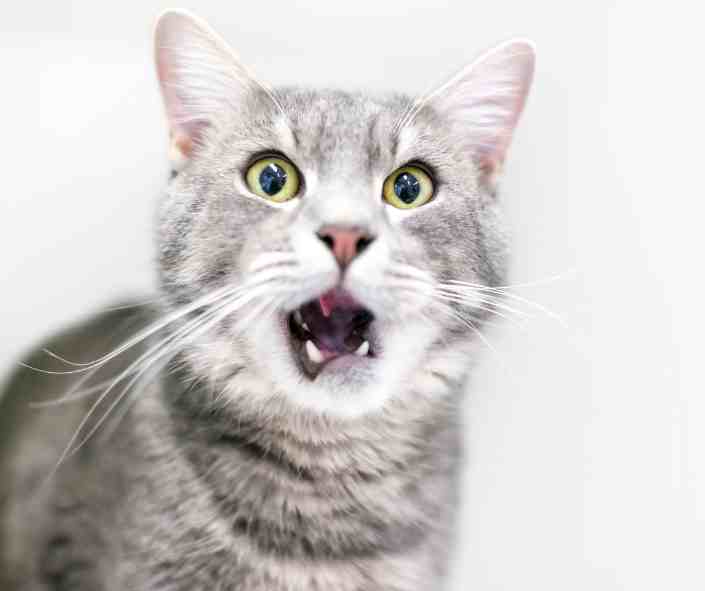
Senior Cat Care: Strategies for a Happy, Comfortable, and Healthy Life
Introduction: Understanding the Unique Requirements of Senior Cat Care
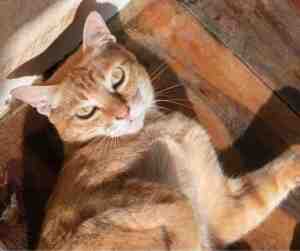 Senior cat care is something we must consider as our beloved felines get older. As our feline companions age, their needs change, and it becomes crucial for us as pet owners to adapt our care to ensure their well-being. Senior cats, typically considered to be around 10 years or older, require special attention to maintain a happy, comfortable, and healthy life. Understanding their unique needs is the first step in providing the best care possible.
Senior cat care is something we must consider as our beloved felines get older. As our feline companions age, their needs change, and it becomes crucial for us as pet owners to adapt our care to ensure their well-being. Senior cats, typically considered to be around 10 years or older, require special attention to maintain a happy, comfortable, and healthy life. Understanding their unique needs is the first step in providing the best care possible.
Recognizing the Signs of Aging in Cats: What to Look For
Just like humans, cats experience physical and cognitive changes as they age. It is important for pet owners to be aware of these signs to address any potential health issues promptly. Some common signs of aging in cats include decreased activity levels, changes in appetite, weight loss or gain, increased thirst, changes in litter box habits, and dental problems. By recognizing these signs, pet owners can take appropriate action and seek veterinary care if necessary.
Creating a Senior-Friendly Environment: Adapting Your Home for an Aging Cat
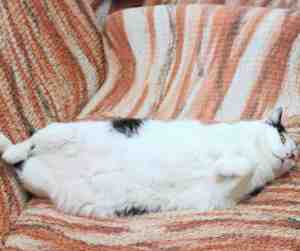 Adapting your home to meet the needs of your senior cat is essential for their comfort and safety. Providing easy access to food, water, litter boxes, and resting areas is crucial. Consider placing litter boxes on each floor of your home to accommodate any mobility issues. Additionally, providing ramps or steps to help your cat reach higher surfaces, such as beds or sofas, can prevent unnecessary strain on their joints. Creating a calm and quiet environment is also important, as senior cats may become more sensitive to noise and stress.
Adapting your home to meet the needs of your senior cat is essential for their comfort and safety. Providing easy access to food, water, litter boxes, and resting areas is crucial. Consider placing litter boxes on each floor of your home to accommodate any mobility issues. Additionally, providing ramps or steps to help your cat reach higher surfaces, such as beds or sofas, can prevent unnecessary strain on their joints. Creating a calm and quiet environment is also important, as senior cats may become more sensitive to noise and stress.
Nutrition for Senior Cats: Choosing the Right Diet for Optimal Health
Proper nutrition plays a vital role in maintaining the health of senior cats. As cats age, their metabolism slows down, and their nutritional needs change. It is important to choose a high-quality, age-appropriate cat food that is specifically formulated for senior cats. These diets are typically lower in calories and higher in protein to support muscle mass and prevent obesity. Additionally, incorporating supplements such as omega-3 fatty acids can help support joint health and reduce inflammation.
Maintaining a Healthy Weight: Managing Obesity in Senior Cats
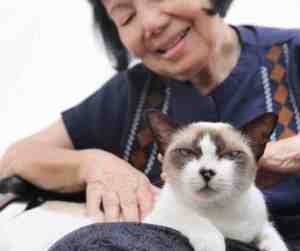 Obesity is a common issue among senior cats and can lead to various health problems, including diabetes, arthritis, and heart disease. To maintain a healthy weight, it is important to monitor your cat’s food intake and provide regular exercise. Feeding measured portions and avoiding free-feeding can help prevent overeating. Engaging your senior cat in interactive play sessions or providing puzzle toys can also help keep them active and mentally stimulated.
Obesity is a common issue among senior cats and can lead to various health problems, including diabetes, arthritis, and heart disease. To maintain a healthy weight, it is important to monitor your cat’s food intake and provide regular exercise. Feeding measured portions and avoiding free-feeding can help prevent overeating. Engaging your senior cat in interactive play sessions or providing puzzle toys can also help keep them active and mentally stimulated.
Exercise and Mental Stimulation: Keeping Senior Cats Active and Engaged
Regular exercise and mental stimulation are essential for the overall well-being of senior cats. Engaging in play sessions with interactive toys not only helps maintain their physical health but also keeps their minds sharp. Puzzle toys that dispense treats or hiding toys around the house can provide mental stimulation and prevent boredom. Additionally, providing scratching posts and vertical spaces for climbing can help keep their muscles toned and joints flexible.
Dental Care for Senior Cats: Preventing Oral Health Issues
 Oral health is often overlooked in senior cats, but it is crucial for their overall well-being. Dental problems, such as gum disease and tooth decay, can lead to pain, difficulty eating, and even systemic infections. Regular brushing of your cat’s teeth, using a toothbrush and toothpaste specifically designed for cats, can help prevent plaque buildup. Additionally, providing dental treats or incorporating dental health supplements into their diet can promote good oral hygiene.
Oral health is often overlooked in senior cats, but it is crucial for their overall well-being. Dental problems, such as gum disease and tooth decay, can lead to pain, difficulty eating, and even systemic infections. Regular brushing of your cat’s teeth, using a toothbrush and toothpaste specifically designed for cats, can help prevent plaque buildup. Additionally, providing dental treats or incorporating dental health supplements into their diet can promote good oral hygiene.
Managing Chronic Conditions: Common Health Problems in Senior Cats
As cats age, they become more susceptible to certain health conditions, such as arthritis, kidney disease, hyperthyroidism, and diabetes. It is important to monitor your senior cat’s health closely and seek veterinary care if any symptoms arise. Regular check-ups and blood tests can help detect and manage these conditions early on, improving the quality of life for your cat.
Regular Veterinary Check-ups: The Importance of Preventive Care
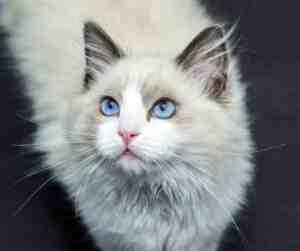 Regular veterinary check-ups are a crucial element of senior cat cares to ensure early detection and prevention of potential health issues. These check-ups typically include a thorough physical examination, blood work, and urine analysis. By monitoring your cat’s health regularly, your veterinarian can identify any changes or abnormalities and provide appropriate treatment or management strategies.
Regular veterinary check-ups are a crucial element of senior cat cares to ensure early detection and prevention of potential health issues. These check-ups typically include a thorough physical examination, blood work, and urine analysis. By monitoring your cat’s health regularly, your veterinarian can identify any changes or abnormalities and provide appropriate treatment or management strategies.
Pain Management for Senior Cats: Improving Quality of Life
As cats age, they may experience chronic pain due to conditions such as arthritis or dental problems. It is important to address their pain to improve their quality of life. Your veterinarian may recommend pain management strategies such as medication, joint supplements, or alternative therapies like acupuncture or laser therapy. By managing their pain effectively, you can help your senior cat remain comfortable and active.
Providing Comfort and Support: Creating a Cozy Space for Aging Cats
 Creating a comfortable and cozy space for your senior cat is essential for their well-being. Providing soft bedding, warm blankets, and heated cat beds can help alleviate any joint pain and keep them comfortable. Additionally, ensuring easy access to their favorite resting spots and providing hiding places or elevated perches can give them a sense of security and comfort.
Creating a comfortable and cozy space for your senior cat is essential for their well-being. Providing soft bedding, warm blankets, and heated cat beds can help alleviate any joint pain and keep them comfortable. Additionally, ensuring easy access to their favorite resting spots and providing hiding places or elevated perches can give them a sense of security and comfort.
Emotional Well-being: Nurturing the Bond with Your Senior Cat
As cats age, they may become more dependent on their human companions for emotional support. Nurturing the bond with your senior cat is crucial for their emotional well-being. Spending quality time together, engaging in gentle play sessions, and providing plenty of affection can help reduce stress and anxiety. Additionally, maintaining a consistent routine and providing a calm and predictable environment can help them feel safe and secure.
In conclusion, providing comprehensive senior cat care is essential for their happiness, comfort, and overall health. By understanding their unique needs, recognizing signs of aging, creating a senior-friendly environment, providing proper nutrition, managing weight, ensuring regular exercise and mental stimulation, addressing dental care, managing chronic conditions, scheduling regular veterinary check-ups, managing pain, providing comfort and support, and nurturing the bond, we can ensure that our senior cats enjoy a happy and fulfilling life in their golden years.

This Post Has 0 Comments